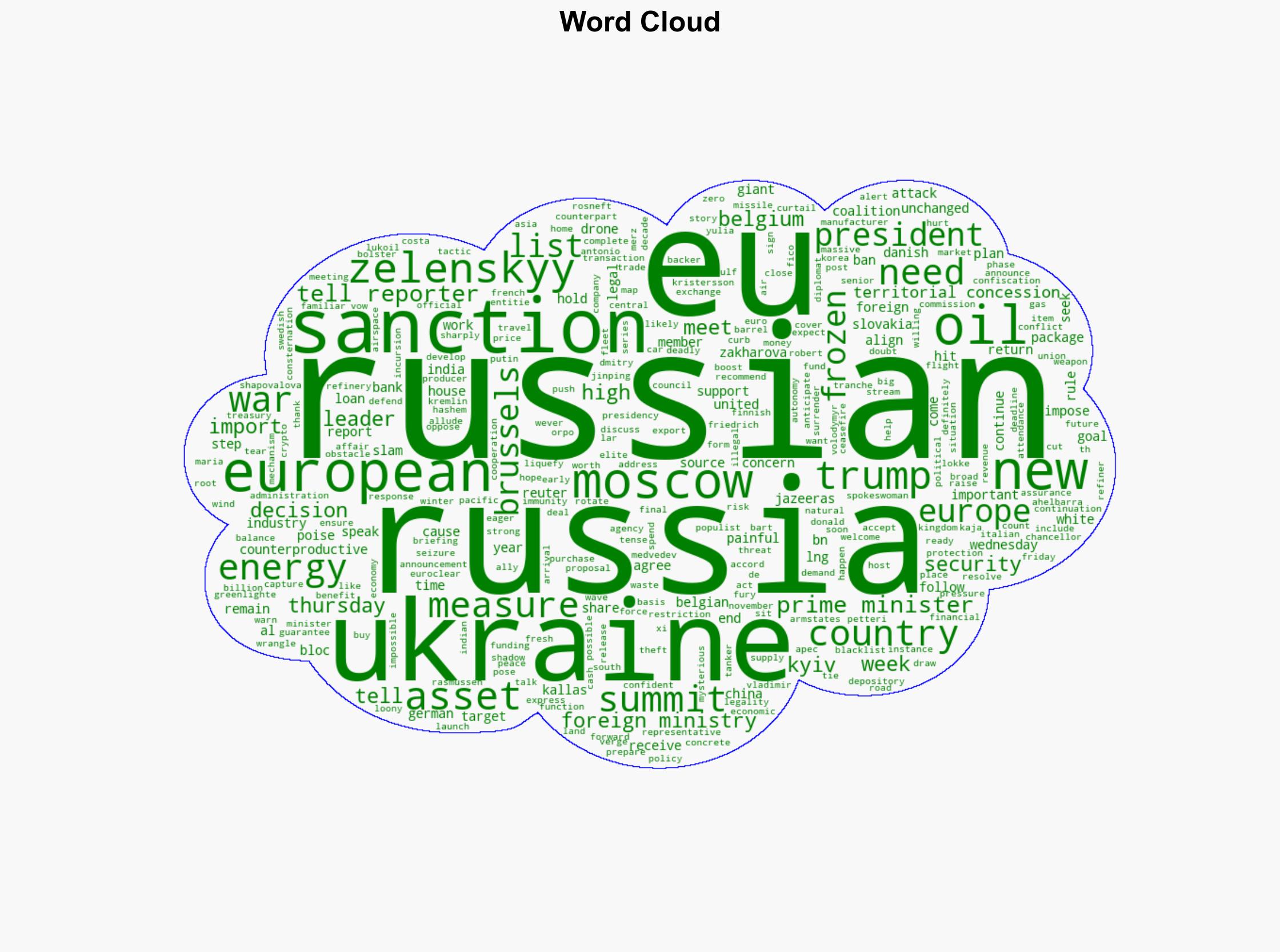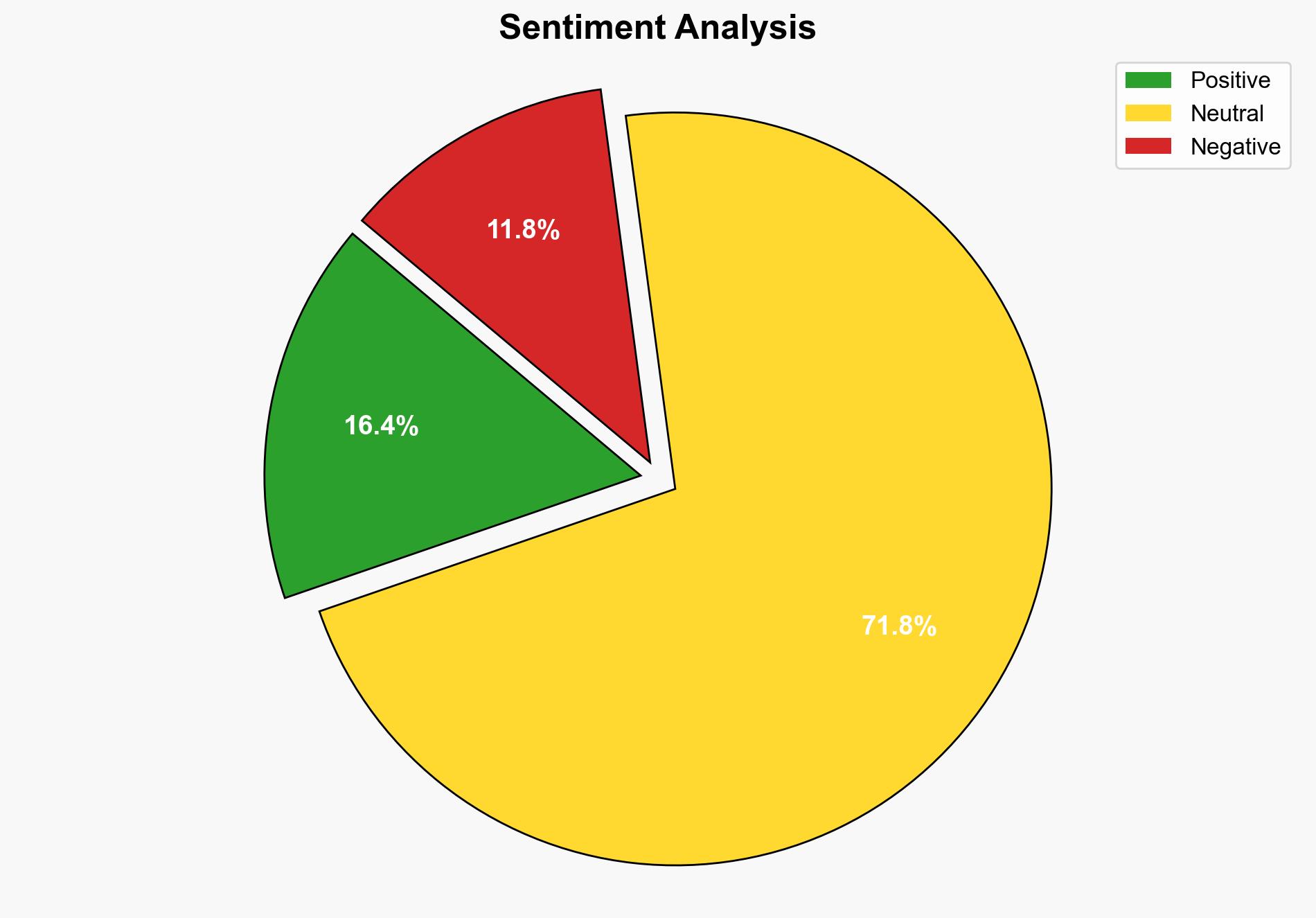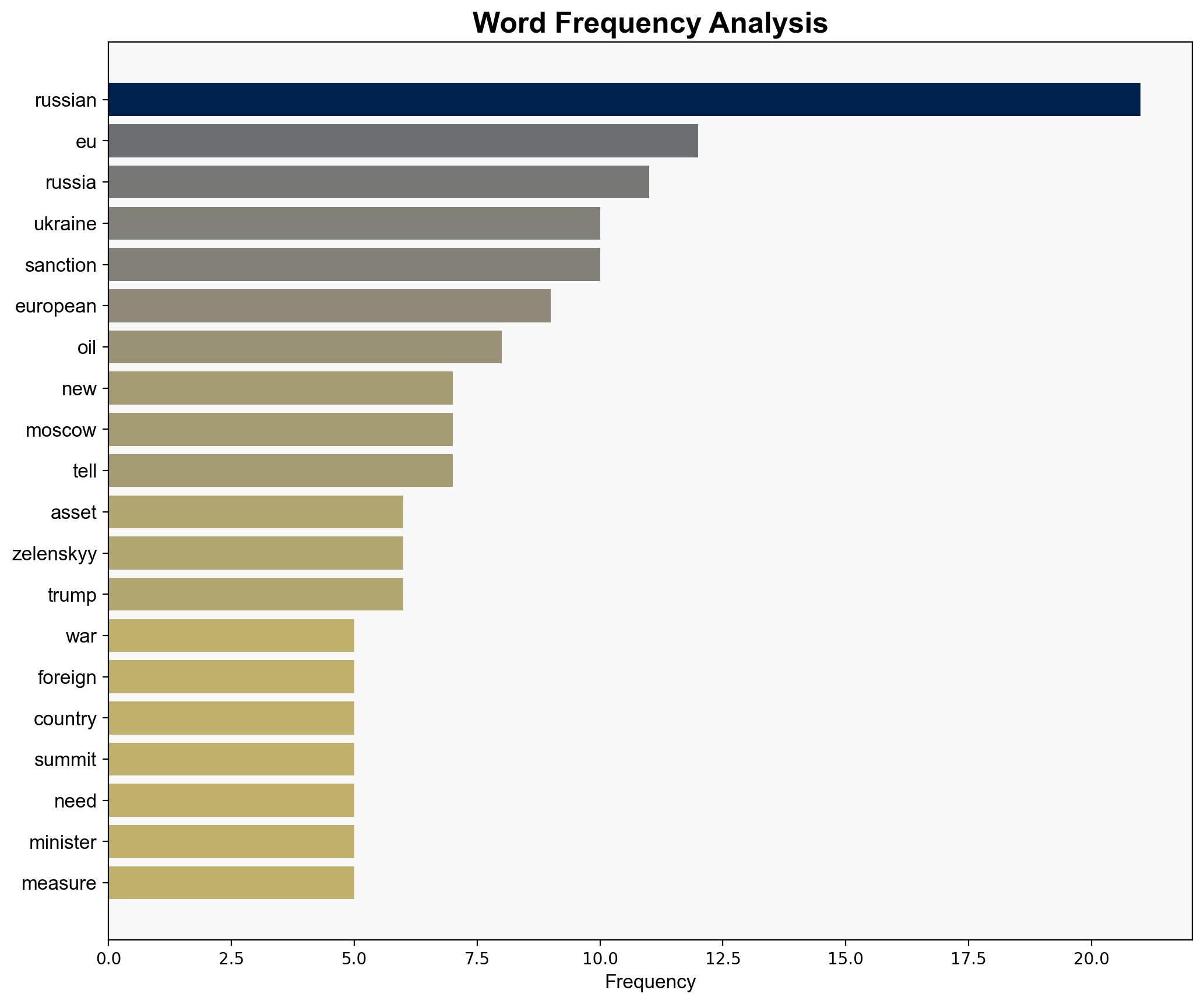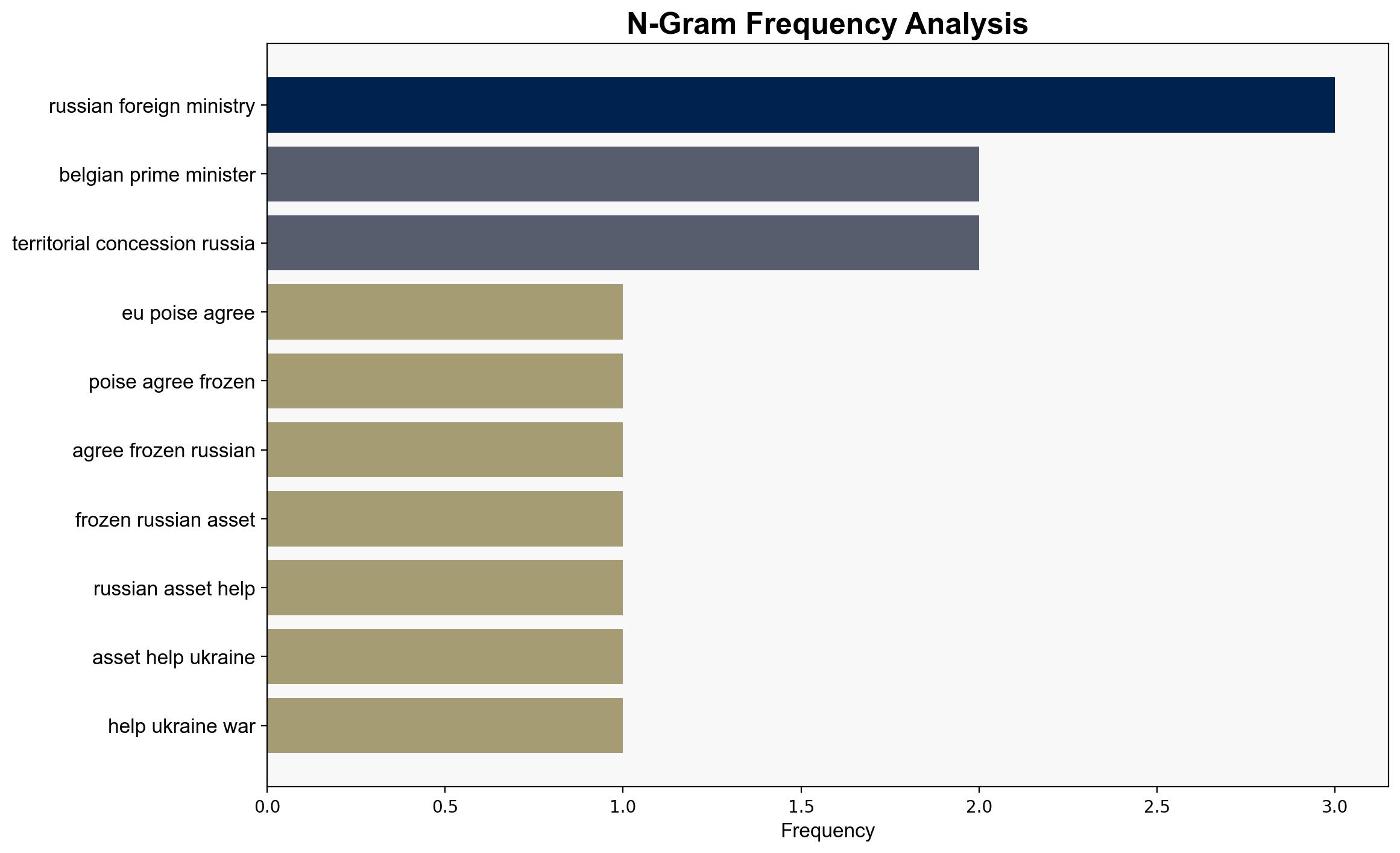EU poised to agree on using frozen Russian assets to help Ukraine in war – Al Jazeera English
Published on: 2025-10-23
Intelligence Report: EU poised to agree on using frozen Russian assets to help Ukraine in war – Al Jazeera English
1. BLUF (Bottom Line Up Front)
The European Union is likely to proceed with a plan to use frozen Russian assets to support Ukraine, despite legal and diplomatic challenges. The most supported hypothesis is that the EU will find a legal mechanism to utilize these assets, driven by geopolitical imperatives and internal political pressures. Confidence level: Moderate. Recommended action: Prepare for potential Russian retaliatory measures and assess the legal frameworks to ensure compliance and minimize risks.
2. Competing Hypotheses
1. **Hypothesis A**: The EU will successfully implement a mechanism to use frozen Russian assets to aid Ukraine, overcoming legal and diplomatic hurdles. This is supported by the EU’s strong political will and previous sanctions alignment.
2. **Hypothesis B**: Legal and diplomatic challenges will prevent the EU from using frozen Russian assets, leading to alternative support mechanisms for Ukraine. This is supported by Belgium’s legal concerns and potential Russian retaliatory threats.
Using ACH 2.0, Hypothesis A is more supported due to the EU’s historical precedent of aligning on sanctions and the political momentum from key EU leaders. However, Hypothesis B cannot be dismissed due to significant legal challenges and the potential for internal EU dissent.
3. Key Assumptions and Red Flags
– **Assumptions**: The EU can legally justify the use of frozen assets. Russia’s response will be limited to diplomatic protests.
– **Red Flags**: Belgium’s legal concerns may delay or derail the process. Russia’s potential for asymmetric retaliation (e.g., cyberattacks) is underestimated.
– **Blind Spots**: The impact of internal EU dissent on the decision-making process, especially from countries with economic ties to Russia.
4. Implications and Strategic Risks
– **Economic**: Potential for increased energy prices and economic instability within the EU if Russia retaliates.
– **Cyber**: Heightened risk of cyberattacks targeting EU infrastructure as a form of Russian retaliation.
– **Geopolitical**: Escalation of tensions between the EU and Russia, potentially drawing in other global actors.
– **Psychological**: Increased pressure on EU unity and public opinion, especially in countries with significant Russian economic ties.
5. Recommendations and Outlook
- Develop contingency plans for potential Russian retaliatory measures, including cyber defense enhancements.
- Engage in diplomatic efforts to mitigate legal challenges and ensure EU unity.
- Scenario Projections:
- Best: EU implements asset use with minimal legal issues and limited Russian response.
- Worst: Legal challenges stall the process, leading to EU disunity and severe Russian retaliation.
- Most Likely: EU proceeds with asset use, facing moderate legal challenges and diplomatic tensions.
6. Key Individuals and Entities
– Antonio Costa
– Volodymyr Zelenskyy
– Bart De Wever
– Friedrich Merz
– Maria Zakharova
7. Thematic Tags
national security threats, economic sanctions, EU-Russia relations, geopolitical strategy





